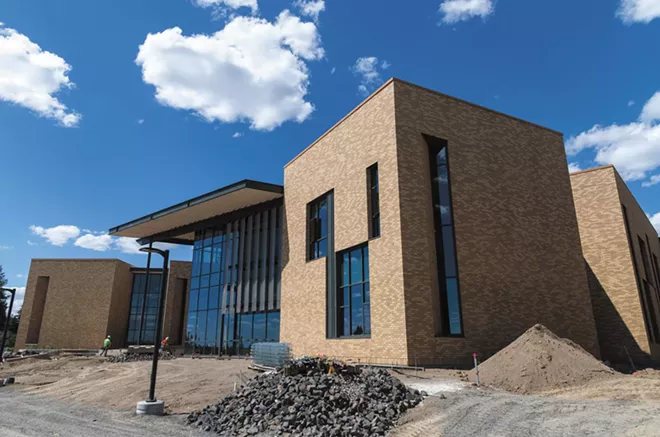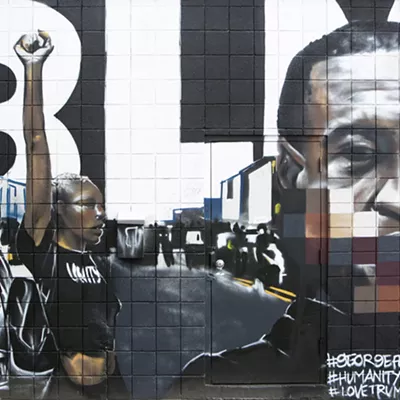
Registered voters across Spokane County received their ballots early last week for the Feb. 13 special election that mainly consists of tax asks from public schools. Even though we've had our ballots for a while, if you're like me, you probably haven't opened your ballot, or even cracked the voters' pamphlet.
So, we've compiled a breakdown of what's on the ballot for three of the county's largest district's — Spokane Public Schools, Central Valley School District and Mead School District.
This year, people living within the SPS' boundaries will be asked to approve a three-year replacement levy and a six-year bond that will pay to modernize the aging infrastructure in the district.
The school district is asking voters to support nearly $300 million in funding for more staff, curriculum materials and after-school activities like sports, clubs and music programs. This comes with an estimated levy rate of $2.50 per $1,000 of assessed property — the highest rate allowed under Washington law and the same rate as the current levy.
This means someone who owns a $390,000 home (Spokane County's median home price in December 2023) would be on the line for about $1,000 a year, or $80 per month. However, since properties are assessed by the county on an annual basis, the levy rate may change, but the total collected stay the same.
So in SPS, the actual total the levy will bring in $95 million in 2025, $99 million in 2026, and $103 million in 2027.
SPS' proposed bond sits at about $200 million and would completely replace two elementary schools, update old infrastructure in three other schools and fund the design work for two elementary school replacements (that wouldn't begin until after a new bond is put on the ballot and approved by voters in another six years).
Arguments against both propositions say that the burden on taxpayers would be too high. They also argue against a February election altogether, on the idea that fewer people vote or pay attention to February ballots and therefore aren't the best time to ask such important funding questions.
Folks who live within CVSD boundaries also have two separate tax asks on the ballot. A three-year $137 million educational levy and another six-year $47.5 million capital levy.
If the educational levy is passed, the school district plans to "pay expenses of educational programs and operations not funded or fully funded by the state," which include things like employee compensation, hiring more nurses and counselors, and all extracurricular activities.
The estimated levy rate is $2.40 per $1,000 of assessed property — the same as it was in the 2022-24 levy passed three years ago.
This year is the first time that CVSD has put a capital levy before its voters, making it somewhat of a wildcard. It comes with a much smaller estimated tax impact of 39 cents per $1,000 of assessed property.
CVSD plans to use these funds to address safety and security on campus by creating secure entrances and repairing some schools' roofs. Technology in the district, like aging computers and wireless network, would also be upgraded if the levy is passed.
Neither of the two levies had statements against them in the voters' pamphlet after "repeated recruitment attempts" by the Spokane County Auditor's Office.
Mead voters have it relatively easy this year with only a single, three-year, nearly $60 million educational levy on the ballot. Like SPS' levy, Mead School District's levy comes with an estimated tax rate of $2.50 per $1,000 of assessed value.
If passed, these funds would represent 14% of the district's entire operating revenue, according to the district. Many programs like athletics, music and drama are fully funded by these levy dollars. These dollars would also help fund salaries for "custodial, maintenance, grounds and security" employees.
Like CVSD, there was no recorded argument against the levy in the voters' pamphlet.
All levies require a simple majority of voters to approve, bonds need a supermajority, meaning more than 60% of voters participating in the election need to support a bond for it to pass.
Ballots must be turned returned by Feb. 13 by 8 pm, or they won't count. The results should begin rolling out soon after Election Day, but Spokane County officials won't certify the results until Feb. 23.
This story has been updated to accurately reflect that the amount of dollars the levy will bring in is set, but the estimated levy rate may change.























